Gymkhana’s Gulrez Arora has brought sauces inspired by Michelin-starred restaurants to grocery, with the £7bn Indian takeaway market in his sights
Gulrez Arora was desperate to get a reservation at Gymkhana when a mutual friend said he’d introduce him to Jyotin Sethi, CEO of JKS Restaurants, the group that counts the famously oversubscribed, two Michelin star Indian restaurant in Mayfair among its stable.
“I was like: ‘Dude, please connect me, because I can never get a resy,’” Arora remembers. It was to prove a propitious introduction. After dining at the restaurant the pair became friends. And in one of their conversations Arora wondered aloud to Sethi: “Why has nobody reimagined Indian food at home? You’ve created this new level of Indian dining experience, but when you go down the grocery aisle it feels like the Indian of yesterday, stuck in the 1950s.”
Arora was working for Mars at the time but had always “had the itch to build” his own business. And his 10 years at Mars “prepared me to look for the right trends” when considering if his idea had legs. He and Sethi quickly grew convinced it did, and Gymkhana Fine Foods – the grocery arm of the business – was born, with Arora as CEO and co-founder.
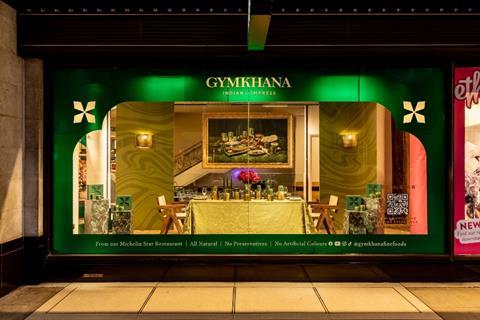
‘The Avengers of Indian food’
Working in partnership with JKS, they’ve assembled a team he calls “The Avengers of Indian food” to work on the brand’s range of high-end cooking sauces, marinades and chutneys. He says having the Gymkhana name attached “created a bit of an advantage” when starting out, but an even bigger positive is having “access to some of the best chefs in the world”.
“A lot of brands could probably out-compete us on capital, maybe on execution. But I have this team of chefs. When it comes to Indian food, I don’t think this level of knowledge and skill exists anywhere else.”
However, bearing the name of arguably the best Indian restaurant in the UK – “I have a lot of friends from America that actually book their trips around a reservation”, Arora says – brings obstacles, too.
“We know we’re a premium brand, and we want to stay true to that premium price of £6.75. Obviously that can alienate people,” he says. “I would love the brand to be accessible to everyone, but that’s not the reality.”
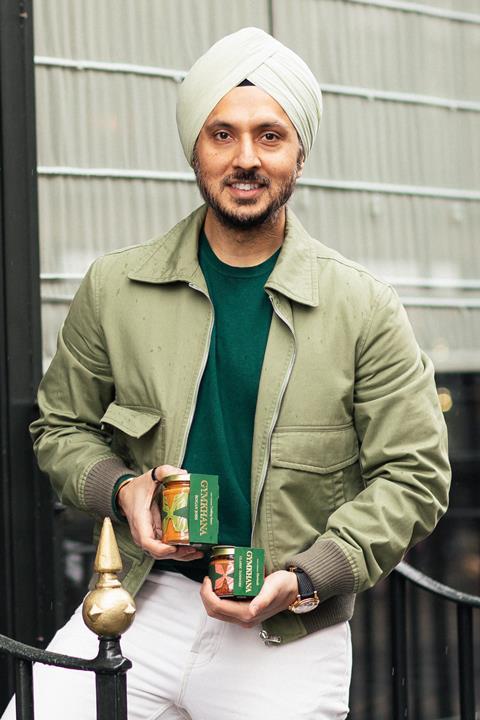
Born: New Delhi, India
Lives: Kensington
Age: 41
Family: Wife and a three-year-old daughter
Potted CV: Consultant; 10 years at Mars; Gymkhana Fine Foods
Career highlight: The innovation programme I built at Mars
Business icon: It’s a bit clichéd, but Steve Jobs
Business motto: Speed over perfection
Book currently reading: Good to Great by James C. Collins
Item you couldn’t live without: My wife would say my phone… and she’s probably right!
Favourite restaurant: Do you even need to ask?
Favourite curry: I’m a Delhi boy, so butter chicken is in our blood
Favourite Gymkhana Fine Foods product: The vindaloo cooking sauce
It’s not stopped Gymkhana Fine Foods launching into mainstream retail. The brand, which turned over £2.1m in its first full year of business in 2024 (it says it’s on track to triple that this year), went into 390 Sainsbury’s stores last month, following listings with Waitrose, Ocado and Whole Foods Market.
“We did a lot of research to understand our shopper base, and I was surprised that a lot of Waitrose shoppers are also Sainsbury’s shoppers,” he says. “Between seven and eight UK households out of 10 eat Indian at home, so you have the penetration and understanding. Our job’s simple: Communicate that this is just 10 times better than anything else they’ve had.”
Even with such confidence, it could be tricky to convince consumers to stump up £6.75 for a 300ml jar of butter masala or vindaloo cooking sauce. After all, that’s about seven times the price of a Sainsbury’s own-label sauce and double that of The Spice Tailor. But Arora is confident consumers will trade up.
“The Gymkhana brand has really helped send the message this is Michelin star Indian at home. Once you have that sort of credibility baked in, consumers understand that, actually, they don’t want it to be a cheap product! If it was priced like the rest of the category, there’d be no reason to believe,” he says.
Read more Big Interviews:
-
Biona founder Noel McDonald’s 55-year organic odyssey is only just starting
-
HelloFresh CEO Philip Doran on problem-solving, preferences and popularity
-
Elise Seibold: ‘Suntory failed its customers in 2024’
The brand has also been very intentional over in-store execution. Always close to the fresh meat, Fish and poultry, the plan is to create a “one-stop solution”.
“We want to target those people who get off the train and are like: ‘Shit, I’ve got nothing to cook for dinner.’ We genuinely believe this is the new takeaway.”
This comparison also helps the brand’s value proposition. “If I compare our product to a takeaway, suddenly we’re a value product,” he says. “Could we take 1%-2% of the £7bn Indian takeaway and delivery market? One hundred per cent we could. That’s the opportunity, rather than the competition in the ethnic aisle.”
Disrupting ‘sleepy’ categories
It’s an aisle Arora thinks has become “stale”. He hopes Gymkhana can do for the world food aisle what he’s seen multiple “disruptive brands” do for others “when they come after those sleepy categories”.
“You talk about the most mundane category: canned tomatoes. Then here comes Mutti with this incredible quality, doing a phenomenal job of delivering a product that’s two, three times more expensive. Bold Bean, Pip & Nut, Manilife – these are all brands that are going after these sleepy categories.”
Gymkhana is also going after the US. Its first restaurant will open in Las Vegas “in November or December”, with Gymkhana Fine Foods launching at a similar time online, to be followed by “a national exclusive launch in a big retailer in February”.
Meanwhile, on British shores, the brand is in “late-stage talks” with further national retailers for launches next year while it’s also planning some “very exciting, very disruptive innovation” for April.
The response from retailers has been “amazing”. After initially listing six SKUs in 120 stores in October, Waitrose rolled the brand out to 289 stores in May and took five more products.
“We’ve taken a category that was growing at 1%-2% at Waitrose and completely changed its trajectory – and 94% of that category growth is driven by Gymkhana,” Arora says. “Ottolenghi is doing the same for Middle Eastern. It’s a groundswell. All of a sudden, consumers are like: You know what? To expect any sort of quality in a jar, I’ve got to pay minimum £5. So, you just shifted the consumer. And that’s what retailers love.”







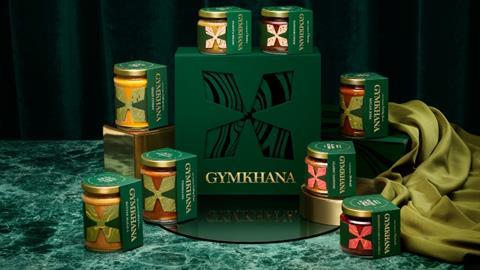



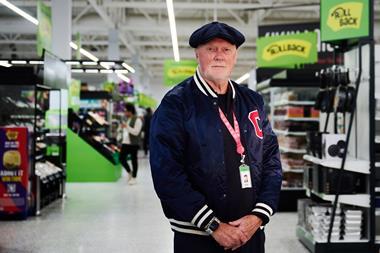

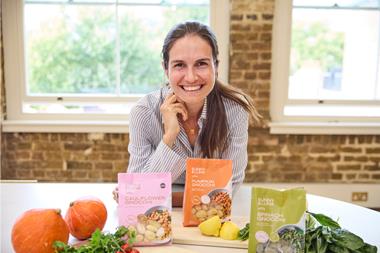

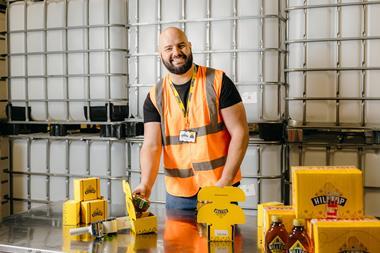
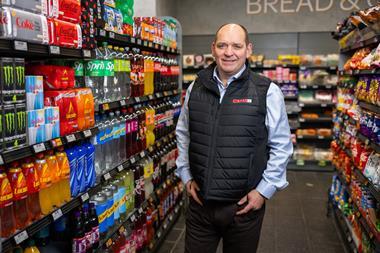
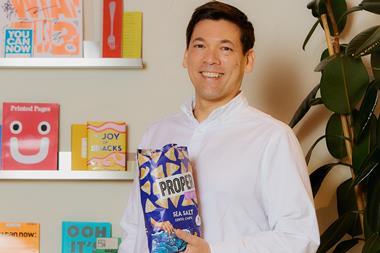
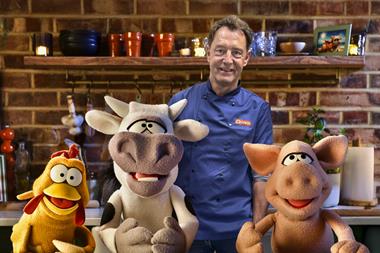
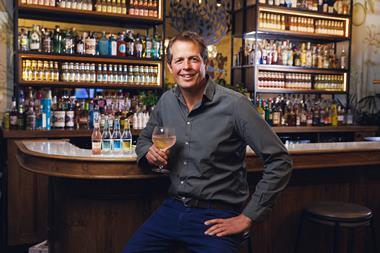
No comments yet